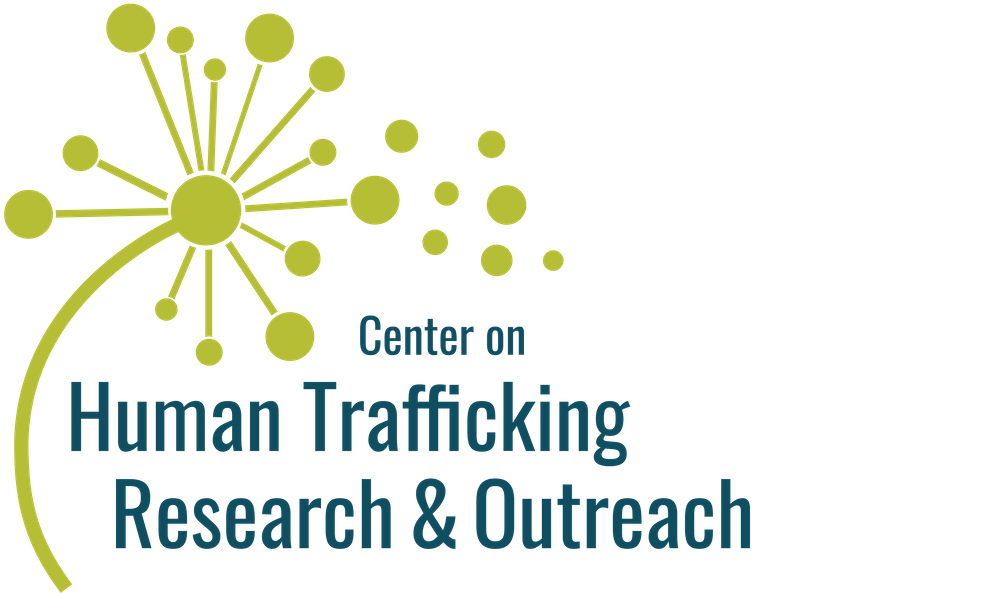
CenHTRO announced the Prevalence Reduction Innovation Forum Learning Series during the Results from the Field Conference in November 2023. Scheduled from December 2023 through early 2024, the PRIF Learning Series events consist of virtual presentations by the PRIF research teams that dig further into the prevalence estimation methodologies, findings, and lessons learned from these global projects.
Video recordings and full slides are available immediately following the events.
| DECEMBER 2023 Domestic Servitude in Tunisia The University of Massachusetts Lowell Dr. Sheldon Zhang of the University of Massachusetts Lowell discusses research on estimating the prevalence of domestic servitude in Tunisia. The team utilized two methods to estimate the prevalence of domestic servitude in Tunis, Tunisia: (1) Time-Location Sampling (TLS), and (2) Mark-Recapture sampling. Collaborators included New York University and a local team from ELKA Consulting. |
Download the presentation slides. (PDF) |
| JANUARY 2024 Child Sex Trafficking in Brazil The Freedom Fund Presented by Carl Kendall, Débora Aranha, and Elizabeth Anderson. The Freedom Fund’s PRIF project estimated the size of the population of female children and adolescents less than 18 years of age experiencing commercial sexual exploitation of children (CSEC) in the Recife Metropolitan Area (RMA) in Brazil. The study used 1) the Successive Sampling Population Size Estimation (SS-PSE) method via Respondent-Driven Sampling (RDS) among young women between 18 and 21 years of age who engaged in commercial sex and who began exchanging sex for money, favors, or goods or were otherwise commercially sexually exploited at least once before their 18th birthday, and 2) the Network Scale-Up Method with a random sample of RMA residents contacted by phone. |
Download the presentation slides. |
| FEBRUARY 2024 Forced Labor in the Fishing Industry in Costa Rica New York University Presented by Dr. Meredith Dank of New York University and IOM Costa Rica's Francesca Tabellini and Alina Cedeño. The project in Costa Rica estimated the prevalence of forced labor in the fishing industry in Costa Rica. The team employed (1) multi-stage Probability Proportional to Size (PPS) or household enrollment sampling, and (2) multi-wave snowball or Link Tracing Sampling (LTS) to examine the prevalence of forced labor in Costa Rica’s fishing sector. A Network Scale-Up Method (NSUM) component was added to the PPS survey. The project included collaborations with the University of Massachusetts Lowell and a local team from the International Organization for Migration. |
Download the presentation slides. |
| APRIL 2024 Forced Labor Among Domestic Workers in Morocco NORC at the University of Chicago Presenters by Ridhi Sahai and Kareem Kysia from NORC, Katrina Cole from Justice Information Resource Network, and Sheldon Zhang from the University of Massachusetts Lowell. The team from NORC explored the prevalence of domestic servitude in the Anfa and Maarif regions of Casablanca, Morocco, using two strategies: (1) Mark-Recapture and (2) Link Tracing Sampling (LTS). In addition, NORC fielded a randomized controlled trial embedded in the LTS component to understand if there are differences in prevalence estimates when using cell phone-based versus in-person interviewing techniques. NORC implemented the study in collaboration with local data collection partner Claire Vision Consulting, local research coordinator Mr. Ragbi Aziz, and the University of Massachusetts Lowell. |
Download the presentation slides. (PDF) |
| JUNE 2024 Labor Trafficking Among Agricultural Workers in Brazil Stanford Human Trafficking Data Lab Researchers from the Stanford Human Trafficking Data Lab presented findings on estimation strategies used to measure the prevalence of labor trafficking among agricultural workers in Brazil. The Stanford team used two estimation methods – probability sampling proportional to size (PPS) and the network scale-up method (NSUM) – to examine the prevalence of labor trafficking in the agricultural sector across four Brazilian states: Maranhão, Bahia, Piauí, and Tocantins. |
Download the Presentation Slides. (PDF) |
AUGUST 2024 Forced Labor in Pakistan's Brick Kiln Industry Johns Hopkins University Researchers from Johns Hopkins University and Aga Khan University presented findings and lessons learned about estimation strategies used to measure the prevalence of forced labor in the brick kiln industry in Sindh province of Pakistan. The research team utilized two sampling methodologies: (1) multi-stage, cluster random sampling with probability proportional to size, and (2) respondent-driven sampling. The presentation also described the impacts of the August/September 2022 floods on the brick kiln industry, on the study, and on the working and living conditions of brick-kiln workers in Pakistan, with a particular focus on impacts on forced labor. |
Download the Presentation Slides (PDF) |
| Forced Labor Among Tanzanian Migrant Domestic Workers New York University Researchers from New York University, University of Alaska Anchorage, and Community Health and Social Welfare Africa presented findings and lessons learned about estimation strategies used to measure the prevalence of forced labor among Tanzanian migrant domestic workers. The research evaluated two sampling strategies: (1) multi-stage probability proportional to size (later revised to a stratified simple random sampling design), and (2) Vincent Link Tracing Sampling to estimate the prevalence of domestic servitude among women who worked abroad and returned to Tanzania. The study focused on returned domestic workers in Dar es Salaam and Zanzibar. Collaborators also included the University of Massachusetts Lowell. |
Download the Presentation Slides (PDF) |

